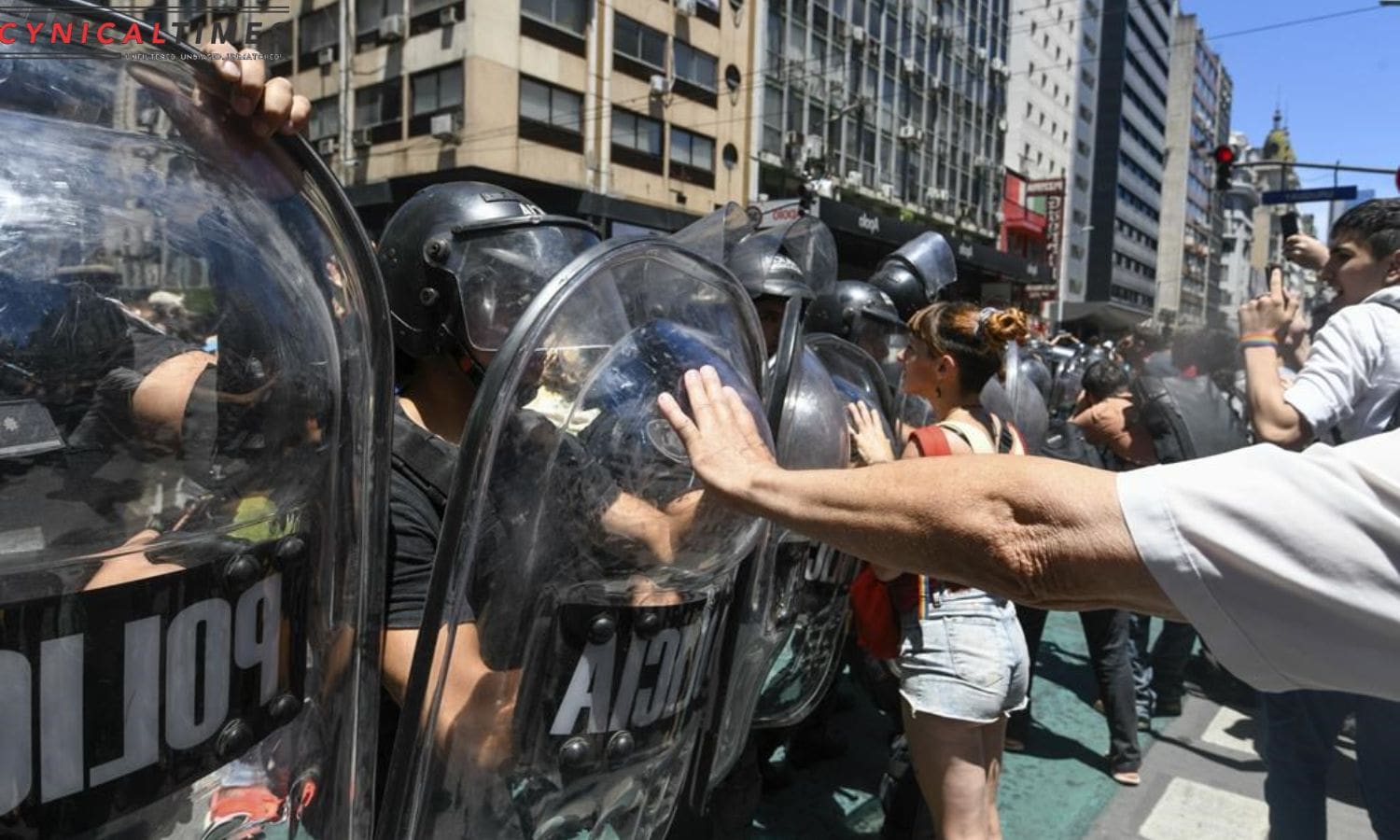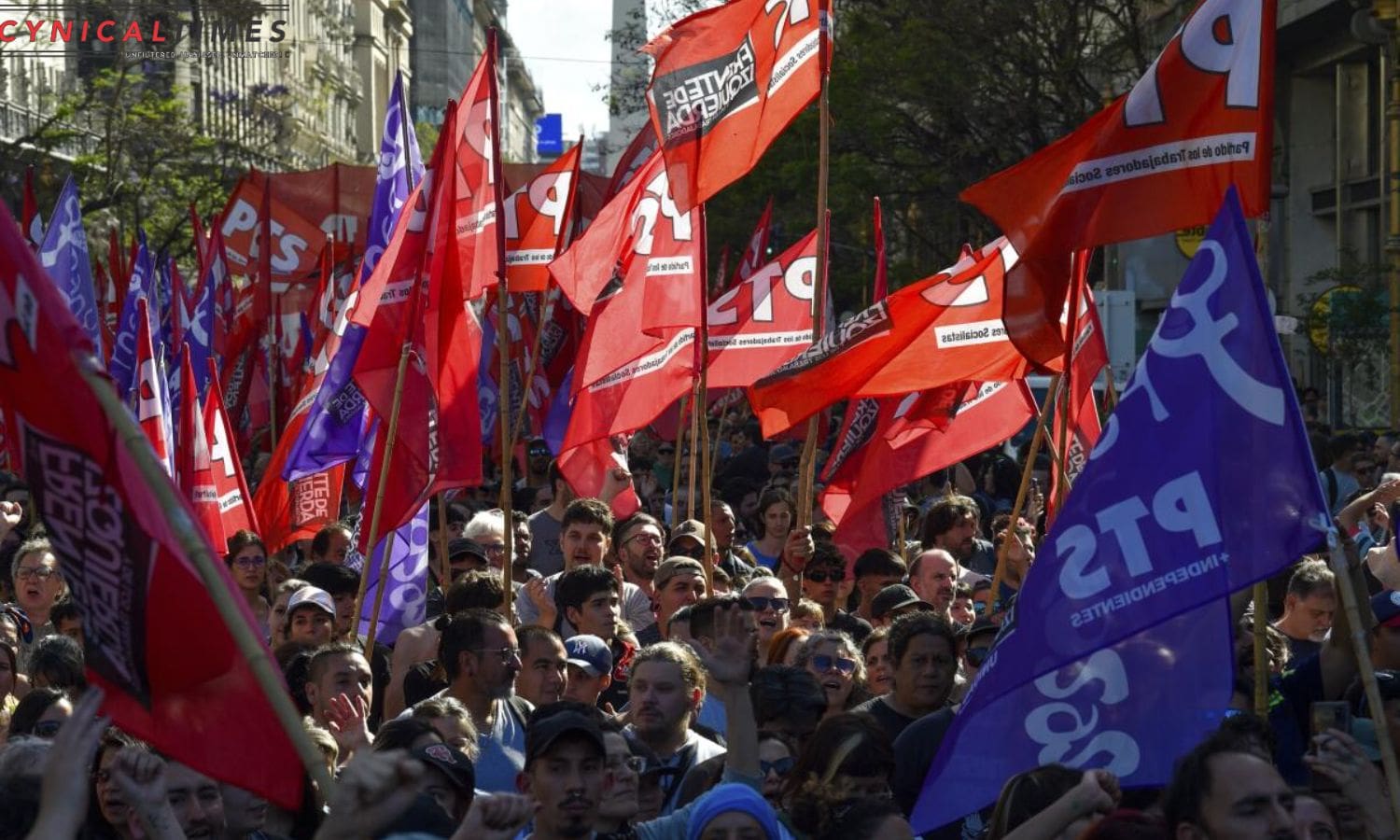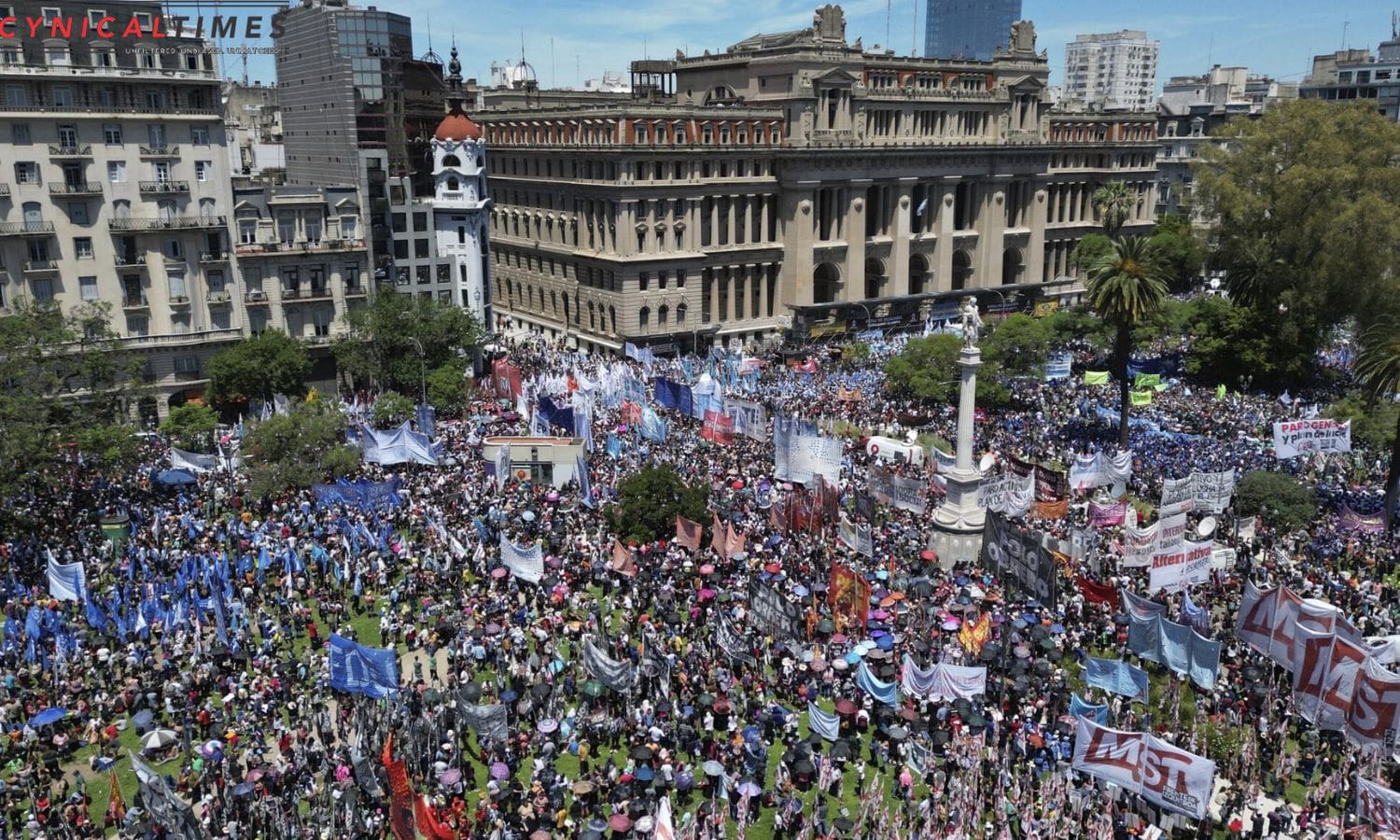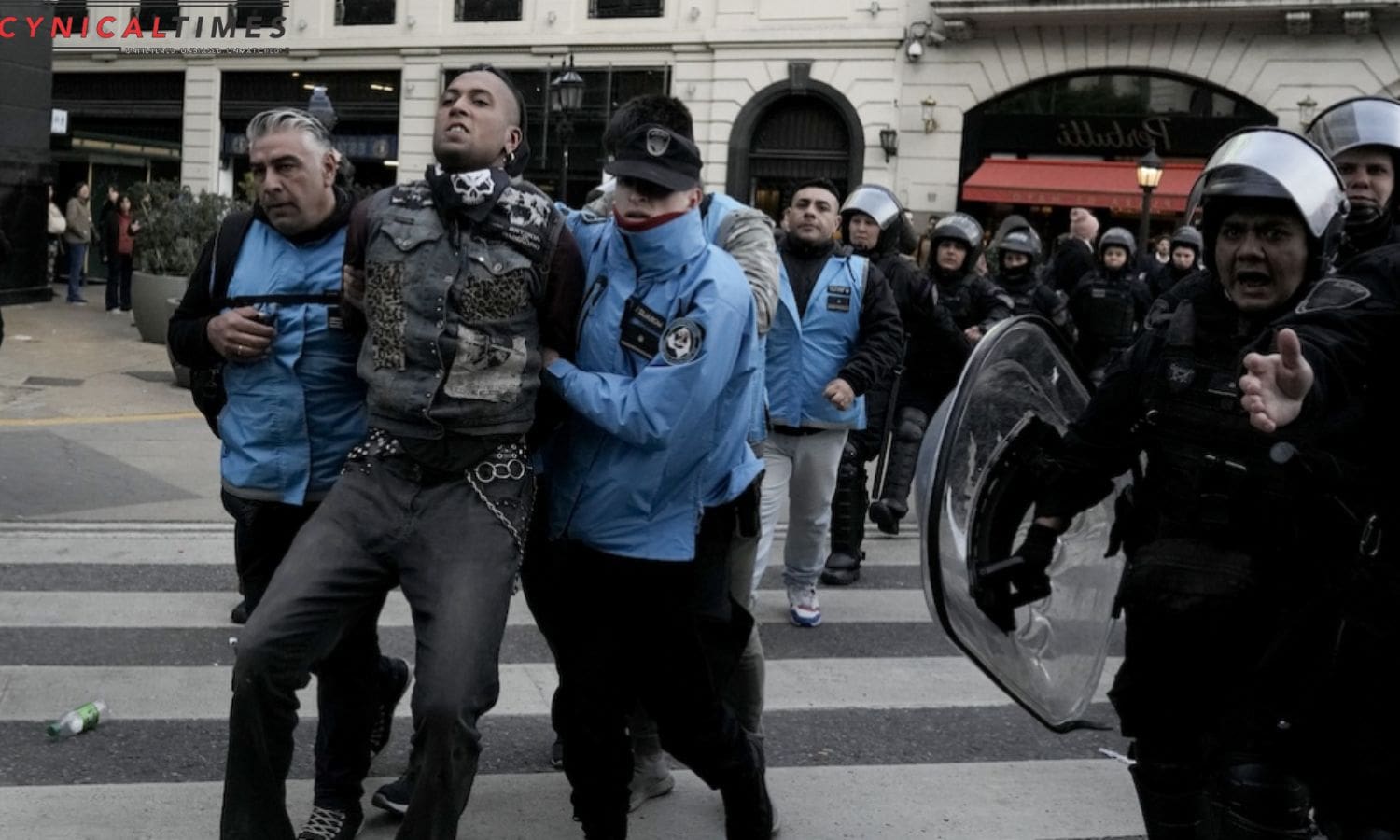Argentinian Unions Rally Against Presidential: In response to President Milei’s comprehensive economic deregulation initiatives, Argentinian unions have organized mass protests, expressing their discontent and concerns regarding the potential impact on workers’ rights and social welfare.
This article aims to analyze the rationale behind the unions’ rallying, President Milei’s defense of his reforms, the government’s response, and the wider social and international implications of these events.
Through an informative and balanced lens, this piece seeks to provide a comprehensive understanding of the ongoing protests and their implications for Argentinian society and beyond.
Key Takeaways Of Argentinian Unions Rally Against Presidential
- Argentinian unions are rallying in peaceful demonstrations to express their dissent against President Milei’s economic deregulation initiatives.
- These demonstrations often involve symbolic acts like ‘cacerolazos’ or banging pots, which serve as a powerful visual representation of public discontent.
- The unions are united in their solidarity and determination to protect workers’ rights and livelihoods.
- President Milei’s defense of the reforms has generated a range of public reactions, with some supporting the reforms for their potential to rebuild the country and improve prosperity, while others argue that they exacerbate inequality and erode social safety nets.


President Milei’s Comprehensive Economic Transformation Initiatives:
President Milei’s initiatives aim to bring about significant changes in Argentina’s struggling economy. One of the key aspects of his plan is the easing of government regulations, which is expected to promote business growth and attract investment. By reducing bureaucratic barriers, businesses can operate more efficiently and effectively, leading to increased productivity and economic expansion.
Additionally, President Milei plans to privatize state-run industries, which could inject new capital and expertise into these sectors, stimulating growth and innovation. Furthermore, his focus on stimulating exports and investment is aimed at boosting the country’s international trade and attracting foreign capital.
These initiatives have the potential to reshape Argentina’s economic landscape by creating a more business-friendly environment and fostering economic growth. However, it is important to consider the potential challenges and risks associated with these reforms, as well as the impact on various sectors and social groups.
Mass Protests and Symbolic Dissent
As mass protests against President Milei’s austerity and deregulation measures continue in Argentina’s capital, unions are rallying in peaceful demonstrations to express their dissent.
The protests have been largely peaceful, with participants engaging in symbolic acts of dissent such as ‘cacerolazos’ or banging pots. These demonstrations serve as a powerful visual representation of the public’s discontent with the proposed economic changes. The use of pots as a protest tool dates back to the country’s economic crisis in 2001 when people took to the streets to express their frustration.
The current protests also highlight the solidarity among workers and their determination to protect their rights and livelihoods. The unions’ support for peaceful demonstrations showcases their commitment to voicing their concerns in a non-violent manner, while still making a strong statement against the government’s economic policies.


Also Read: Legal Challenge to Police Chief Ballot Measure Rejected by Judge
President Milei’s Defense of Reforms and Public Reaction
President Milei’s televised address defending the proposed reforms has sparked a range of reactions from the public, as they grapple with the implications of his goals to rebuild the country, restore individual freedom and autonomy, and dismantle regulations hindering economic growth. Some citizens view these reforms as a necessary step towards revitalizing the economy and promoting personal liberties.
They believe that reducing government intervention will attract foreign investment, create job opportunities, and improve overall prosperity. On the other hand, there are concerns among certain segments of the population that these reforms may exacerbate inequality and lead to the erosion of social safety nets. They argue that deregulation could potentially benefit the wealthy at the expense of the most vulnerable. The table below provides a summary of the contrasting viewpoints on President Milei’s defense of the proposed reforms:
| Viewpoint | Arguments |
|---|---|
| Pro-reform | – Rebuilding the country and promoting economic growth |
| – Restoring individual freedom and autonomy | |
| – Attracting foreign investment and creating job opportunities | |
| – Improving overall prosperity | |
| Anti-reform | – Exacerbating inequality and eroding social safety nets |
| – Potentially benefiting the wealthy at the expense of the most vulnerable |
As the debate continues, it remains to be seen how President Milei’s defense of the proposed reforms will shape public opinion and influence the trajectory of Argentina’s economic future.
Government’s Response to Protests and New Public Order Protocol
The government’s handling of the protests against presidential economic deregulation has raised concerns about potential infringements on constitutional rights.
The response to the demonstrations included allowing them to take place while simultaneously threatening to cut public aid payments to those blocking thoroughfares.
Additionally, the government announced a new ‘protocol’ aimed at maintaining public order, which grants federal forces the authority to clear streets without a judicial order.
This protocol has faced criticism for potentially infringing on constitutional rights.
- The government’s decision to allow protests while threatening to cut public aid payments has been seen as contradictory and potentially punitive.
- Granting federal forces the authority to clear streets without a judicial order raises concerns about the potential for abuse of power.
- Critics argue that this protocol undermines the right to peaceful assembly and disregards the importance of judicial oversight.
- There are fears that this new protocol could be used to suppress dissent and stifle legitimate protests against government policies.


Social and International Concerns
The handling of the protests against presidential economic deregulation in Argentina has raised social and international concerns, particularly regarding potential infringements on constitutional rights and the government’s response to dissent. Labor, social, and human rights groups have signed a petition urging international bodies to intervene, expressing their worries over the new public order procedures and the potential removal of individuals from public assistance benefit lists.
These measures have sparked a debate on the criminalization of the right to protest, with critics arguing that they infringe upon the fundamental democratic principles of freedom of expression and assembly. The government’s response to the protests and its disregard for these concerns have led to growing international scrutiny and calls for accountability.
To emphasize the potential impact of these measures, a table is provided below:
| Concerns | Implications |
|---|---|
| Infringements on constitutional rights | Threat to freedom of expression and assembly |
| Removal from public assistance benefit lists | Increase in poverty and inequality |
| Criminalization of the right to protest | Suppression of dissent and democratic values |
These concerns highlight the need for a balanced approach that respects the rights of citizens while addressing economic challenges.
Conclusion Of Argentinian Unions Rally Against Presidential
In conclusion, the recent mass protests by Argentinian unions against President Milei’s economic deregulation initiatives have highlighted the deep divisions within the country.
While the president defends the reforms, public reaction has been largely negative, with concerns raised about the potential social and international implications.
The government’s response to the protests, including the implementation of a new public order protocol, reflects the challenges faced in maintaining social stability amid increasing dissent.
Our Reader’s Queries
Why are Argentines protesting?
The proposed judiciary reform has ignited a protest in Argentina, but the citizens are also expressing their discontent over the rampant inflation and corruption. The people are demanding a change and are taking to the streets to voice their concerns. The situation is tense, and the government needs to take immediate action to address the issues and restore the faith of the people in the system.
What are the Labour unions in Argentina?
The CGT, a significant labor-union federation in Argentina, was established in 1930. However, its leadership was disputed by various factions such as socialists, anarchists, and syndicalists from 1935 until the early 1940s. Eventually, Juan Perón, an ambitious Cabinet minister, took control of the CGT.
Who was the first president of Argentina?
Bernardino Rivadavia was the inaugural president of Argentina, born on May 20, 1780, in Buenos Aires. Despite being a skilled leader, he struggled to bring together the conflicting provinces or manage the regional caudillos (leaders). Sadly, he passed away on September 2, 1845, in Cádiz, Spain.
When was Argentina founded?
Independence Day, a national holiday, is celebrated on 9 July every year to commemorate the formalization of the Declaration of Independence by the Congress of Tucumán in 1816. This historic event marked the birth of a new nation and is a significant milestone in the country’s history. It is a day of pride and patriotism for the people of the country, who come together to celebrate their freedom and independence.

